This article was medically reviewed by Luba Lee, FNP-BC, MS. Luba Lee, FNP-BC is a Board-Certified Family Nurse Practitioner (FNP) and educator in Tennessee with over a decade of clinical experience. Luba has certifications in Pediatric Advanced Life Support (PALS), Emergency Medicine, Advanced Cardiac Life Support (ACLS), Team Building, and Critical Care Nursing. She received her Master of Science in Nursing (MSN) from the University of Tennessee in 2006.
There are 17 references cited in this article, which can be found at the bottom of the page.
This article has been viewed 417,968 times.
Cold sores, or fever blisters, are small blisters that occur on and near your lips. When the blisters burst open they form a crust. They are caused by a herpes simplex virus which is extremely contagious. The virus can infect your mouth or your genitals. There is no cure, but there are thing you can do to help them heal faster.[1]
Steps
Identifying a Cold Sore
-
1Recognize an emerging cold sore. The cold sore will go through three phases as it erupts. Though the symptoms may vary, most people experience:[2]
- Tingling, itching, tenderness, pain, or burning before the sore is visible. Pain is usually most severe at onset but should improve after 4 or 5 days.
- Blisters. The blisters are most common along the edge of your lips, but may also be present on your nose or cheeks. Small children may also get them in their mouths.
- The blisters break open and ooze liquid, then form a crust. The blisters usually heal within two weeks but it may take as long as a month.
-
2Take extra care of yourself if it is the first outbreak. The first outbreak is generally the worst. You may also have other symptoms including:[3]
- Fever
- Headache
- Enlarged lymph glands
- Sore throat
- Gum pain
- Muscle pain
Advertisement -
3Go to a doctor if it doesn’t heal. Cold sores will usually heal without medical attention, but if this doesn’t occur or you experience complications, you should get checked by a doctor. Go to a doctor if:[4]
- Your immune system is suppressed. This may be the case for people with HIV/AIDS, who are undergoing cancer treatments, have severe burns, eczema, or are taking anti-rejection drugs after an organ transplant.[5]
- Your eyes are irritated or infected.
- The cold sores recur frequently, do not heal in two weeks, or are very severe.
Using Home Remedies
-
1Apply ice or a cool compress. Wrap a cube of ice in a wash cloth and hold it against your cold sore. Alternatively, gently press a cool, moist wash cloth onto the area. This may help reduce redness, making it less noticeable. It will also soften crusts and help it heal.[6]
- Do not rub because you don’t want to irritate it or spread fluids to other areas.
-
2Try alternative medicines. The results of scientific studies using these remedies have not been clear, but some people may find them helpful. You can try:
- Lysine.[7] This is an amino acid which can be purchased as an oral supplement or a cream. This can be taken as a preventative measure — try 500–3,000 mg/day. Begin treatment as soon as you suspect an outbreak.[8]
- Propolis. This is also referred to as synthetic beeswax. It comes in the form of an ointment and is said to reduce the length of the breakout.
- Rhubarb and sage.
-
3Reduce your stress. Some people find that their cold sores are triggered by stress, possibly because stress lowers the immune system.[9] If you find this to be the case for you, you may want to consider using stress management techniques such as:[10]
- Relaxation techniques including meditation, deep breathing, visualizing calming images, yoga, or tai chi.
- Exercise. Doing 15 to 30 minutes a day of exercise will make you feel better physically and emotionally. Your body releases endorphins when you exercise which help to relax you and lift your mood.
- Get social support. This could mean staying connected with friends or family or seeing a counselor.
Applying Medication
-
1Use an over-the-counter cream or ointment. Docosanol (Abreva) is available in local pharmacies and may help to decrease the amount of time that the outbreak lasts.[11] Read and follow the instructions on the packaging. To apply it, dab a small amount of the cream onto your cold sore 5 times a day.
- Consult a doctor before using this medication if you are pregnant, nursing, or treating a child.
- You might also try medicated Blistex to soothe your cold sore.
- Apply an SPF to your cold sore while you're outside to protect your skin.
-
2Try antiviral creams. These should be applied as soon as you feel the tingling, even before the blister has appeared. Apply it up to five times a day for five days, unless the packaging directs you to do otherwise. These medications are available in pharmacies without a prescription.[12]
- Acyclovir 5% is a cream you apply to the cold sore 5 times a day for 4 days.
- Penciclovir 1% is a cream you dab on your cold sore every 2 hours for 4 days.
-
3Try a cold sore patch. These patches will hide the sore and they have a gel in them which will help the wound heal. This is beneficial both because of the medication inside, but also because covering the sore helps to prevent you from accidentally touching it and spreading the virus.[13]
- The gel inside is called hydrocolloid. If it is your first time using this product, be sure to read the instructions in the packaging.
-
4Treat pain with topical creams. Cold sores can be very uncomfortable and you may be able to get relief from topical creams that you can apply. Look for over-the-counter creams with the following ingredients:[14]
- Lidocaine
- Benzocaine
-
5Reduce discomfort with oral painkillers. If topical painkillers weren’t sufficient, you may want to try oral painkiller medications such as ibuprofen or acetaminophen (Tylenol).[15]
- Ibuprofen is not recommended for people with asthma or stomach ulcers.
- Children and teenagers should never take medicines containing aspirin.
- Consult your doctor before taking any medications if you are pregnant or nursing.
-
6Take prescription antiviral medications. Some come in the form of a pill while others are applied topically. If it is very severe, you may be given an injection. If home care did not work, your doctor may prescribe:[16]
- Acyclovir (Xerese, Zovirax).[17] This is usually prescribed at a dose of 400 mg three times per day or 200 mg fives times per day for 10 days.
- Famciclovir (Famvir).[18] You will take 500 mg three times daily for seven to 10 days
- Penciclovir (Denavir).[19] This comes in a 1% cream and is applied to affected lips and face.
- Valacyclovir (Valtrex). For the initial episode, use 1 g twice daily for 10 days. For recurrence, use 500 mg twice daily for three days. For a decrease in viral transmission, use 500 mg once daily.
Preventing Cold Sores
-
1Avoid contact with cold sore blisters. The virus is contagious. It is present in the fluid of the blisters, but can also be spread when the blisters aren’t present. You can prevent spreading it by:[20]
- Not touching or picking the sores. Covering them may help.
- Not sharing eating utensils, razors, or towels with others, particularly when the blisters are present.
- Not kissing or engaging in oral sex when the blisters are present. This is when the virus is most easily spread.
-
2Wash your hands.[21] Wash your hands thoroughly with soap after treating your cold sores. This is particularly important if you are touching people with lowered immune systems such as:[22]
- Babies
- People undergoing cancer treatments
- People with HIV/AIDS
- People on anti-rejection drugs after an organ transplant
- Pregnant women
-
3Protect the area from sun and wind even when sores are not present. Some people find that exposure to sunlight seems to bring on an outbreak if that is the case for you, you may want to try the following, even when no sores are present:[23]
- Put sunscreen on the area where outbreaks occur. The SPF should be at least 15.
- Apply lip balm that contains a sunscreen to prevent dry, sunburned, or chapped lips.
Expert Q&A
-
QuestionCan I have herpes on my buttocks?
 Chris M. Matsko, MDDr. Chris M. Matsko is a retired physician based in Pittsburgh, Pennsylvania. With over 25 years of medical research experience, Dr. Matsko was awarded the Pittsburgh Cornell University Leadership Award for Excellence. He holds a BS in Nutritional Science from Cornell University and an MD from the Temple University School of Medicine in 2007. Dr. Matsko earned a Research Writing Certification from the American Medical Writers Association (AMWA) in 2016 and a Medical Writing & Editing Certification from the University of Chicago in 2017.
Chris M. Matsko, MDDr. Chris M. Matsko is a retired physician based in Pittsburgh, Pennsylvania. With over 25 years of medical research experience, Dr. Matsko was awarded the Pittsburgh Cornell University Leadership Award for Excellence. He holds a BS in Nutritional Science from Cornell University and an MD from the Temple University School of Medicine in 2007. Dr. Matsko earned a Research Writing Certification from the American Medical Writers Association (AMWA) in 2016 and a Medical Writing & Editing Certification from the University of Chicago in 2017.
Family Medicine Physician Yes, you can have anal herpes if you have anal sex. To avoid this, practice safe sex by using a condom.
Yes, you can have anal herpes if you have anal sex. To avoid this, practice safe sex by using a condom. -
QuestionI have had a cold sore for over two months. What should I do?
 Chris M. Matsko, MDDr. Chris M. Matsko is a retired physician based in Pittsburgh, Pennsylvania. With over 25 years of medical research experience, Dr. Matsko was awarded the Pittsburgh Cornell University Leadership Award for Excellence. He holds a BS in Nutritional Science from Cornell University and an MD from the Temple University School of Medicine in 2007. Dr. Matsko earned a Research Writing Certification from the American Medical Writers Association (AMWA) in 2016 and a Medical Writing & Editing Certification from the University of Chicago in 2017.
Chris M. Matsko, MDDr. Chris M. Matsko is a retired physician based in Pittsburgh, Pennsylvania. With over 25 years of medical research experience, Dr. Matsko was awarded the Pittsburgh Cornell University Leadership Award for Excellence. He holds a BS in Nutritional Science from Cornell University and an MD from the Temple University School of Medicine in 2007. Dr. Matsko earned a Research Writing Certification from the American Medical Writers Association (AMWA) in 2016 and a Medical Writing & Editing Certification from the University of Chicago in 2017.
Family Medicine Physician A cold sore should not last longer than a week unless you are immunocompromised. You should seek the attention of a doctor.
A cold sore should not last longer than a week unless you are immunocompromised. You should seek the attention of a doctor.
Warnings
- Consult your doctor before using any medication, even over-the-counter medications and supplements if you are pregnant, nursing, or treating a child.⧼thumbs_response⧽
- Over-the-counter medications and supplements may interact with other prescription medications. If you are unsure whether a medication or supplement is safe for you, talk to your doctor.⧼thumbs_response⧽
- Read and follow the manufacturer's instructions on the packaging of all medications unless instructed otherwise by your doctor.⧼thumbs_response⧽
References
- ↑ https://medlineplus.gov/coldsores.html
- ↑ https://my.clevelandclinic.org/health/diseases/21136-cold-sores
- ↑ https://www.hopkinsmedicine.org/health/conditions-and-diseases/herpes-hsv1-and-hsv2/oral-herpes
- ↑ https://my.clevelandclinic.org/health/diseases/21136-cold-sores
- ↑ https://www.winchesterhospital.org/health-library/article?id=19303
- ↑ https://health.clevelandclinic.org/heres-how-you-can-get-rid-of-a-cold-sore-fast/
- ↑ https://www.stanfordchildrens.org/en/topic/default?id=lysine-19-Lysine
- ↑ Andrea Rudominer, MD, MPH. Board Certified Pediatrician & Integrative Medicine Doctor. Expert Interview. 13 April 2020.
- ↑ https://www.health.harvard.edu/cold-sores
- ↑ https://www.helpguide.org/articles/stress/stress-management.htm
- ↑ https://my.clevelandclinic.org/health/drugs/20744-docosanol-skin-cream
- ↑ https://www.aad.org/public/diseases/a-z/herpes-simplex-treatment
- ↑ https://www.nhs.uk/conditions/cold-sores/
- ↑ https://my.clevelandclinic.org/health/diseases/21136-cold-sores
- ↑ https://www.aafp.org/afp/2010/1101/afp20101101p1084.pdf
- ↑ https://www.aad.org/public/diseases/a-z/herpes-simplex-treatment
- ↑ https://medlineplus.gov/druginfo/meds/a606001.html
- ↑ https://medlineplus.gov/druginfo/meds/a694038.html
- ↑ https://medlineplus.gov/druginfo/meds/a697027.html
- ↑ https://www.hopkinsmedicine.org/health/conditions-and-diseases/herpes-hsv1-and-hsv2/oral-herpes
- ↑ Andrea Rudominer, MD, MPH. Board Certified Pediatrician & Integrative Medicine Doctor. Expert Interview. 13 April 2020.
- ↑ https://www.nhs.uk/conditions/cold-sores/
- ↑ https://medlineplus.gov/ency/article/000606.htm
About This Article
To heal cold sores, try applying a cool compress to the area to soften crusts, which will increase your healing time. You can also try some alternative medicines, such as Lysine, which can prevent an outbreak, or Propolis, which reduces the length of outbreaks. Another preventative technique is stress reduction since stress lowers the immune system. To reduce stress, try meditation, deep breathing, 15-30 minutes of daily exercise, or talking with friends or family. For more tips from our Family Medicine Physician reviewer, including how to treat cold sores with medication, keep reading!
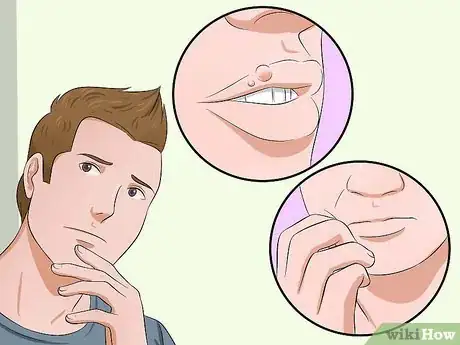
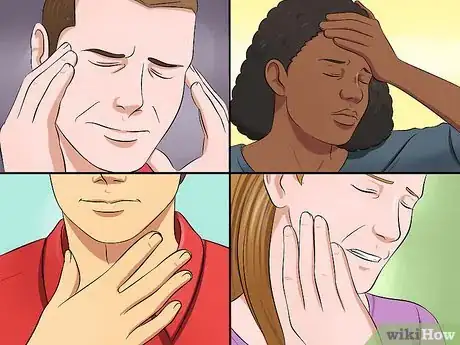
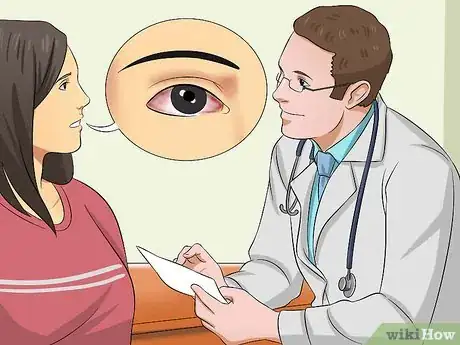
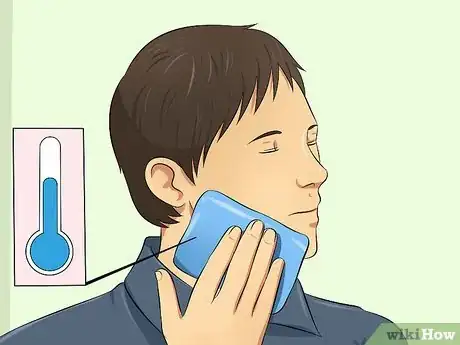
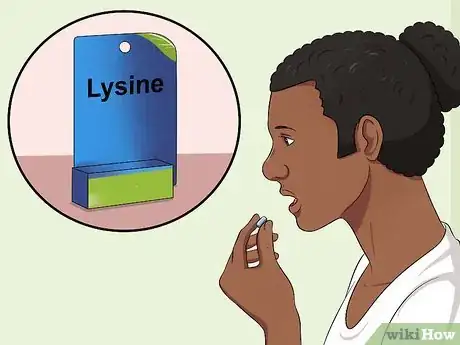

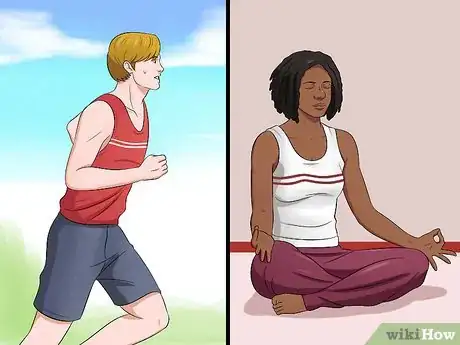
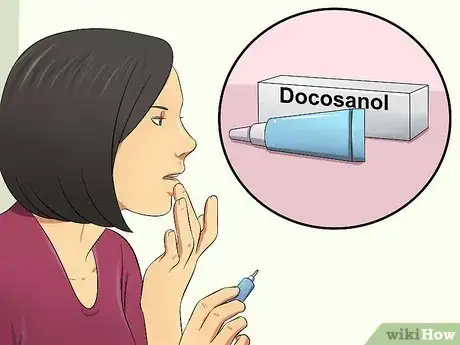
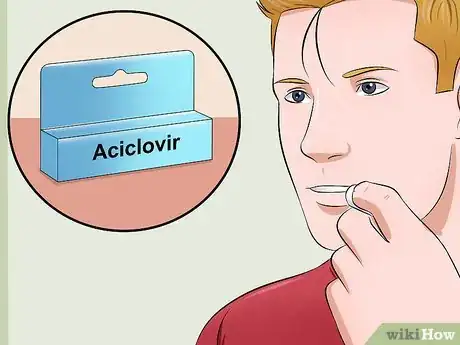
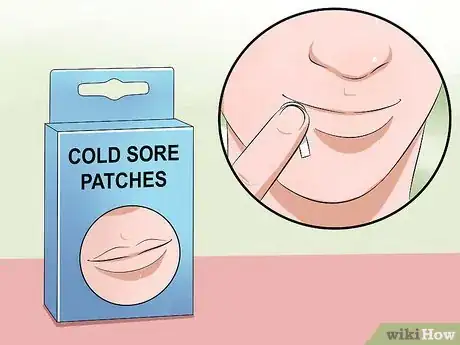
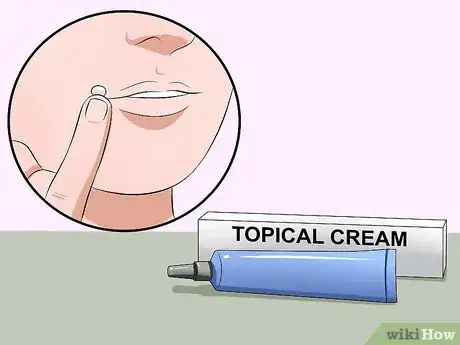
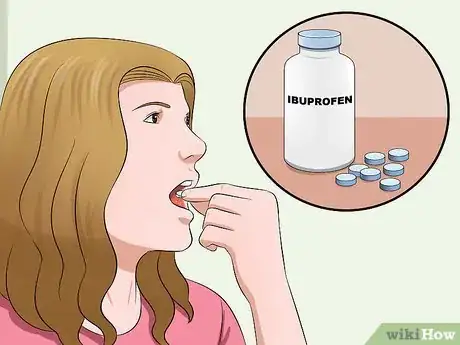
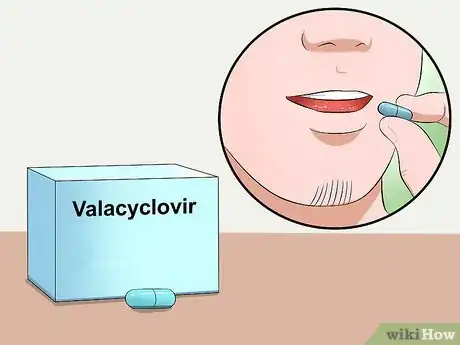
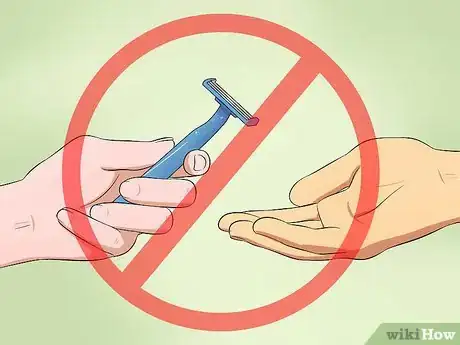
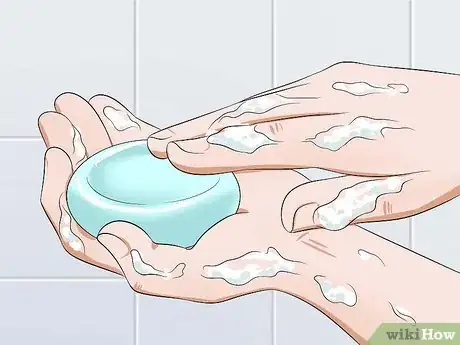
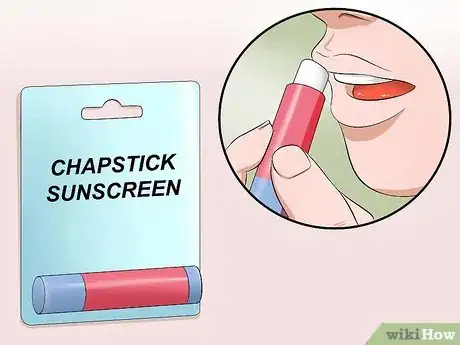

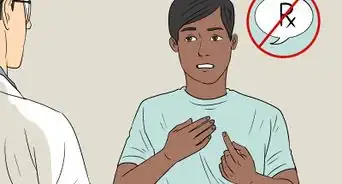
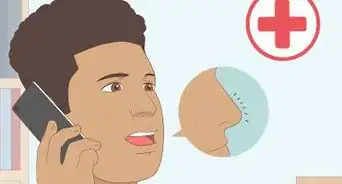
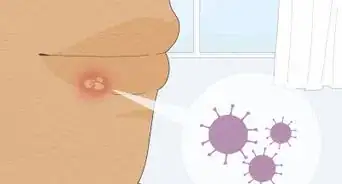


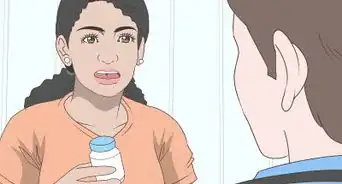

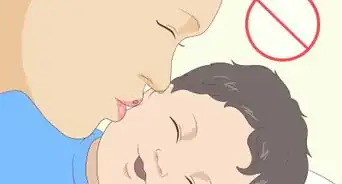

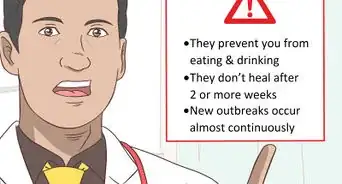
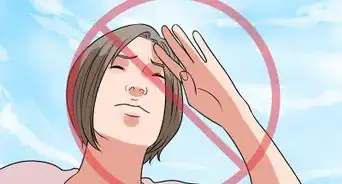









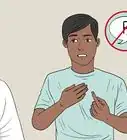
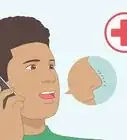
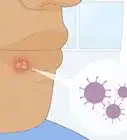



































Medical Disclaimer
The content of this article is not intended to be a substitute for professional medical advice, examination, diagnosis, or treatment. You should always contact your doctor or other qualified healthcare professional before starting, changing, or stopping any kind of health treatment.
Read More...